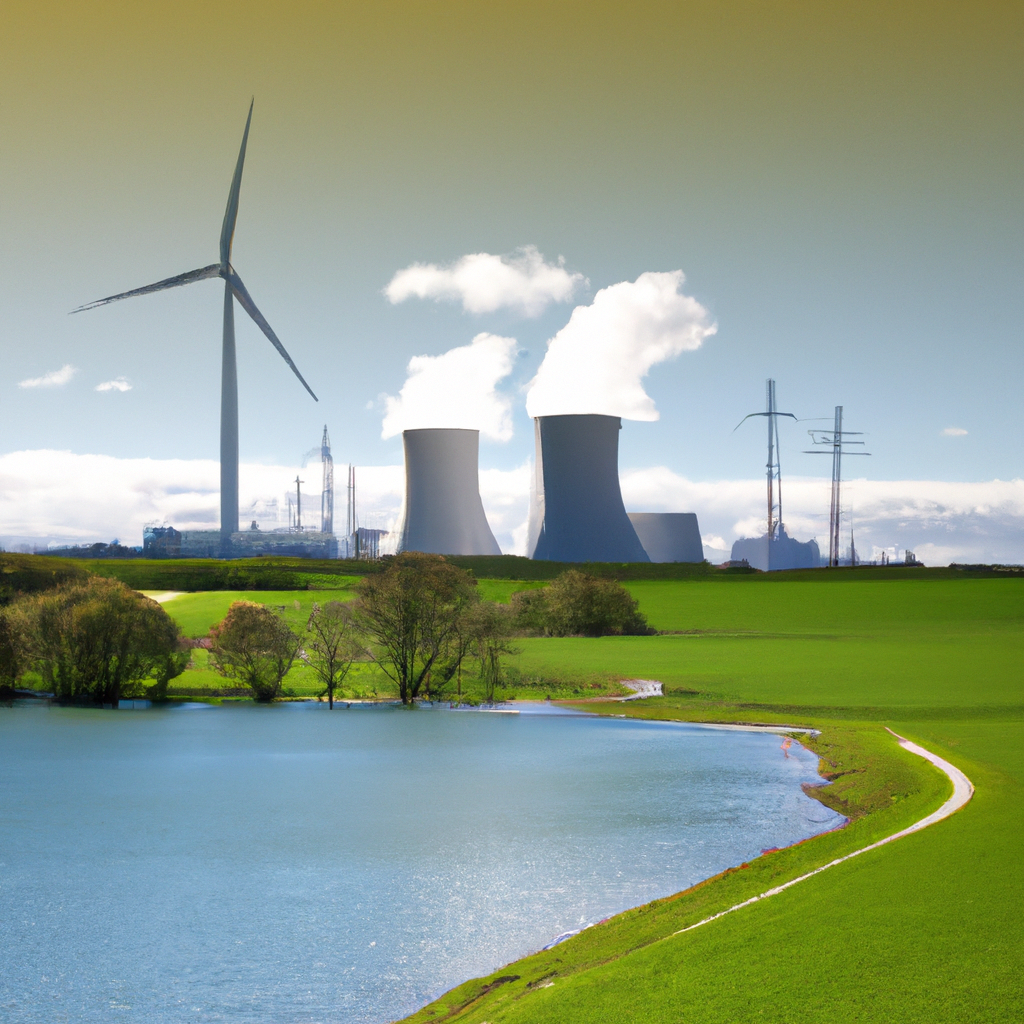Nuclear energy is often associated with disaster, radiation, and toxicity. It is often shrouded in a negative image that is hard to shake off. However, this technology has many benefits that are often overlooked. In this article, we will explore the surprising benefits of nuclear energy for the environment.

What is Nuclear Energy?
Nuclear energy is the energy released by the nucleus of an atom when it is split or fused. This energy can be used to produce electricity, heat, and other forms of energy. The most common method of producing nuclear energy is through nuclear fission, where the nucleus of an atom is split into two smaller nuclei, releasing a large amount of energy.
Benefits of Nuclear Energy
Low Greenhouse Gas Emissions
One of the most significant benefits of nuclear energy is its low greenhouse gas emissions. Nuclear energy produces virtually no carbon dioxide, sulfur dioxide, or nitrogen oxides, which are the primary causes of global warming and acid rain. This makes nuclear energy a clean and environmentally friendly source of energy.
High Energy Density
Another advantage of nuclear energy is its high energy density. Nuclear energy has a much higher energy density than fossil fuels, which means that it can produce more energy per unit of fuel. This makes nuclear energy a highly efficient source of energy.
Reliable and Stable Energy Source
Nuclear energy is also a reliable and stable source of energy. Unlike wind and solar power, which are dependent on weather conditions, nuclear power plants can operate 24/7, providing a consistent supply of energy. This makes nuclear energy an essential source of energy for base-load power generation.
Low Land Use
Nuclear power plants require relatively little land compared to other forms of power generation. A nuclear power plant can generate the same amount of energy as a wind farm or solar farm, using much less land. This makes nuclear energy an efficient use of land resources.
Reduced Dependence on Fossil Fuels
Nuclear energy can also reduce our dependence on fossil fuels. As the world’s fossil fuel reserves continue to dwindle, nuclear energy can provide a reliable and sustainable source of energy. This can help reduce our dependence on foreign oil and gas, and improve national energy security.
Safe and Secure
Contrary to popular belief, nuclear energy is a safe and secure source of energy. Nuclear power plants have multiple layers of safety systems, and operators undergo extensive training to ensure the safe and efficient operation of the plant. Additionally, nuclear power plants are highly secure facilities, with strict security measures in place to prevent unauthorized access.
Cost-Effective
Finally, nuclear energy is cost-effective. While the initial construction costs of a nuclear power plant are high, the cost of generating electricity is relatively low. This makes nuclear energy a cost-effective source of energy over the long term.
Conclusion
Nuclear energy is often misunderstood and overlooked, but it has many benefits for the environment. Its low greenhouse gas emissions, high energy density, reliability, and low land use make it a clean and efficient source of energy. Its ability to reduce our dependence on fossil fuels, and its safety and security, make it an essential source of energy for the future. With the right investments and policies, nuclear energy can play a vital role in our transition to a sustainable and carbon-neutral future.







